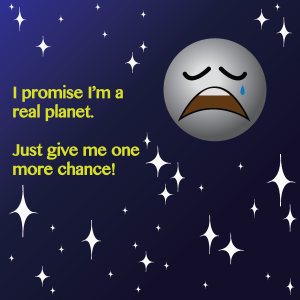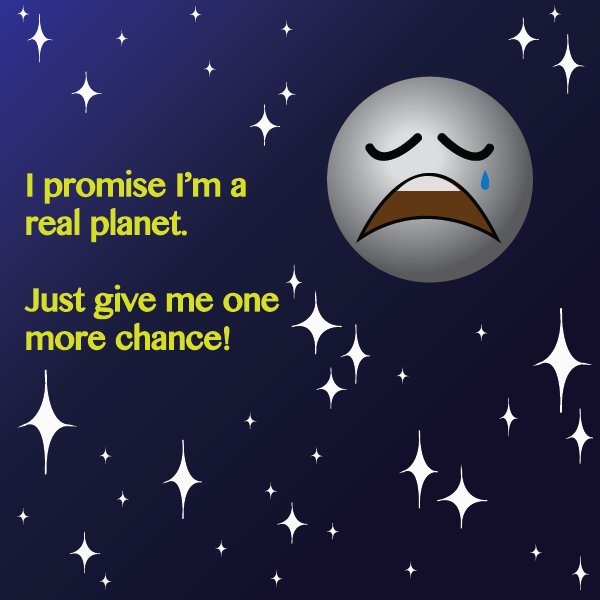Pluto: The little planet that could
 In 2006, Pluto lost its classification as a planet and became known as a “dwarf planet” by the International Space Union (IAU).
In 2006, Pluto lost its classification as a planet and became known as a “dwarf planet” by the International Space Union (IAU).
IAU has been responsible for classifying and naming newly discovered worlds since 1919.
Pluto was discovered in 1930 by Clyde Tombaugh, research astronomer for Lowell Observatory. Since its discovery, more than 1,000 objects have been found orbiting, more than one of which could rival Pluto in size. That is when worldwide astronomers began to question if Pluto was technically a planet.
The current, official IAU guidelines/classification states that a planet is a celestial body that meets the following requirements: 1) is in orbit around the sun, 2) is round or nearly round, and 3) has “cleared the neighborhood” around its orbit.
David Aguilar, director of public affairs at Harvard-Smithsonian Center for Astrophysics, disagrees with IAU’s decision to downgrade Pluto.
“First, it is round – Pluto is round, has an atmosphere and four moons orbiting around it.” Aguilar said. “Second, it orbits a star –Yep it orbits our Sun. Third, it has cleared its orbit of space junk – WHO KNOWS what this really means? The Earth gets hit by hundreds of meteors every day. Technically we’re still clearing out our orbit.”
Now, eight years after being demoted for its size, Harvard Smitherson’s Center for Astrophysics (CFA) is challenging the decision.
“So in 2006, at the end of a two-week-long International Astronomical Union conference in Prague, they waited until most all of the conference attendees had gone home and on the last day proposed a vote that Pluto was not a planet,” Aguilar said. “And, they won the vote 206 yes it is NOT a planet, to 199 no it IS a planet. Now the entire organization, that should have been able to vote, numbered 6,300 members. And many were furious when they saw what had happened. “They quickly named them ‘Dwarf Planets’…which, in their minds, did not mean it was a small planet. When asked if a dwarf fruit tree was a small tree, they would answer YES. When asked if a dwarf pony was a small pony, they would answer YES. When asked if a dwarf planet was a small planet they answered NO. So now, everybody from teachers and kids in classrooms to astronomers around the planet were confused.”
On Sept. 18, 2014, Aguilar organized and hosted a debate among three of the leading experts in planetary science and revisited the debate of “What is a Planet.” The ultimate goal was to find a definition that the public audience could agree upon.
Planet experts Owen Gingerich, chair representative for IAU planet definition committee, Gareth Williams, associated director of the Minor Planet Center, and Dimitar Sasselov, direct of the Harvard Origins of Life Initiative, were asked to present and defend their case viewpoints.
Two of the three panelists, Gingerich and Sasselov, provided definitions that granted Pluto planet status again. After hearing what the IAU representative had to say, “they voted Pluto back into the gang!” Aguilar said.
“I was surprised when its status as a planet was removed; it should definitely have remained a planet with five moons,” said David Lantz, flight controller at NASA. “Guess that shows we still are discovering things inside our own solar system.”
The debate garnered the attention of the media and the astronomy world, which in turn started to raise more questions. Next summer at the annual IAU meeting, astronomers will cover the definition of Pluto and all the smaller planet-like objects found in space.
Aguilar bets Pluto will still be called a ‘Dwarf Planet,’ but the new definition will carry a different interpretation.
“It will really mean it is a small planet,” Aguilar said. “As a whole, the astronomy community has moved on rejecting the idea Pluto is not a planet. Soon, the rest of the world will catch up too.”

